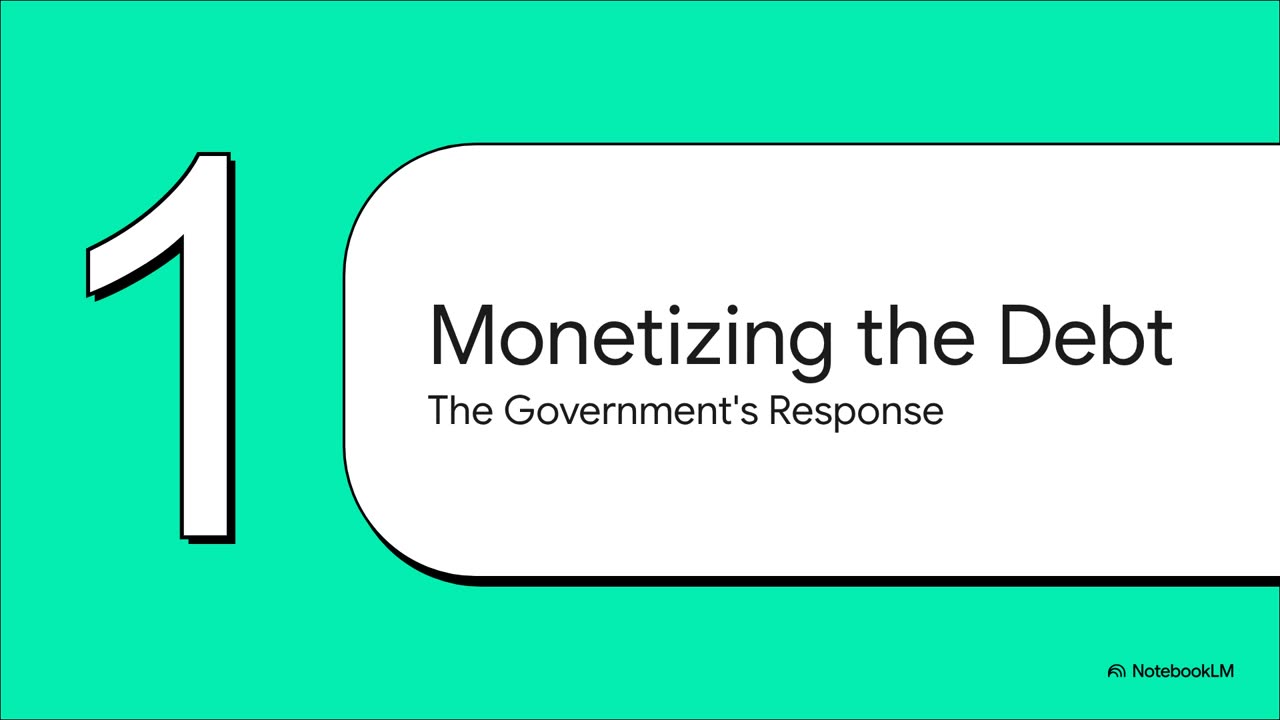Premium Only Content

Inflation, Debt, and Bitcoin's Future as Global Reserve
Table of Contents
Inflation: Causes, Effects, and the Phenomenon of Stagflation
Monetization of Public Debt: Definition, Mechanisms, and Implications
Bitcoin as a Potential Global Reserve Currency: Loss of Trust in Governments and the Reliability of Cryptocurrencies
1. Inflation: This Unknown!
Sources highlight growing concern about inflation, a phenomenon that former Federal Reserve Chair and current US Treasury Secretary Janet Yellen has had to acknowledge is “rising before our very eyes!” It is emphasized that inflation is no longer just an American phenomenon, but a global process that is leading to “stagflation,” an economic condition characterized by high inflation and recession at the same time.
Janet Yellen's contradictions: The author of the original text highlights the “continuing contradictions of Ms. Janet Yellen,” who has gone from declaring a state of deflation or moderate inflation to acknowledging rising inflation.
Stagflation: This scenario presents governments with a difficult dilemma. Policies aimed at cooling inflation (rate hikes, austerity) “produce negative results for short-term economic growth.” Conversely, policies to reinvigorate the economy “pull the same levers in the opposite direction, exacerbating inflation.”
Most affected goods: The pyramid of goods most affected by inflation includes:
Food products
Energy
Raw materials
2. Monetization of Public Debt
The monetization of public debt emerges as a central theme, especially in the context of the “great economic crisis.” This is a process in which a monetary authority (such as a central bank) purchases large quantities of government bonds, leading to an “increase in the money supply.”
Definition: “This is a process of reducing a country's public debt through the purchase of large quantities of government bonds by a major monetary authority.”
Implications for Italy: The document mentions the possibility of a partial monetization of Italian public debt, which “is above 50% of GDP.” It describes a potential mechanism that would involve a “buy-back” operation and an agreement between the ECB, the Bank of Italy, and the Italian Treasury. This would allow “Italian securities to be withdrawn from the market at a price lower than their future redemption values,” canceling them out and offsetting them.
Global Context: It is noted that “several countries are pursuing the monetization of sovereign debt,” suggesting a global trend.
3. Bitcoin as a Potential Global Reserve Currency
An emerging and highly significant issue is the possibility that Bitcoin could assume the role of global reserve currency, driven by growing distrust of governments and fiat currencies. Senator Rand Paul is a strong supporter of this view.
Statements by Senator Rand Paul: Senator Paul has openly expressed his skepticism toward government currencies, stating, "Government currencies are so unreliable—they're also legal tender. They are not backed by anything.“ He further stated, ”I have started to wonder now if cryptocurrency could actually become the world's reserve currency as more and more people lose faith in the government."
Trust in Government: A September 30 Gallup poll highlights that “overall trust in the federal government's handling of international affairs is at a record low of 39%.” Trust in the judicial branch is also declining. In contrast, trust in state and local governments remains higher.
Bitcoin as a Beneficiary of Distrust: Senator Paul points out that “As people continue to lose confidence in their government's ability to manage issues and best represent their interests, Bitcoin and cryptocurrencies are bound to benefit and be embraced even more.”
Specific Support for Bitcoin: Although Senator Paul spoke about “cryptocurrency,” sources indicate that he “has not publicly endorsed any cryptocurrency other than BTC,” suggesting that he was primarily referring to Bitcoin. He also accepted donations in BTC for his 2016 presidential campaign.
Key Takeaways
Sources paint a picture of economic uncertainty, with inflation and stagflation presenting significant challenges for governments. Debt monetization is presented as a potential, albeit complex, solution for reducing public debt. In this scenario of growing distrust in institutions and traditional currencies, Bitcoin emerges as a serious contender for a future role as a global reserve currency, a prospect supported by political figures such as Senator Rand Paul. The discussion suggests a potential paradigm shift in the perception of monetary value and stability.
-
 LIVE
LIVE
Sean Unpaved
1 hour agoTrey Wingo's Gridiron Grab
247 watching -
 1:06:28
1:06:28
Timcast
1 hour agoTrump Admin Threatens GOP Who Vote To Release Epstein Files
109K47 -
 LIVE
LIVE
Side Scrollers Podcast
2 hours agoDruski/White Face Controversy + Women “Experience Guilt” Gaming + More | Side Scrollers Live
382 watching -
 1:39:53
1:39:53
The Mel K Show
2 hours agoMORNINGS WITH MEL K - Narratives Implode as Light Shines on Covid Deception 9-3-25
7.48K3 -
 LIVE
LIVE
The Shannon Joy Show
1 hour agoExclusive With Congressman Tom Massie: "The Epstein Files Are NOT A Hoax. There Are Real Victims"
234 watching -
 1:52:46
1:52:46
Steven Crowder
4 hours agoCongress Drops New Epstein Files and Trump Drops New Bombs on Venezuela Terrorists
263K135 -
 1:10:39
1:10:39
The Rubin Report
3 hours agoCNN Host Actually Thought She'd Outsmarted Shapiro, Until He Asked This
52.8K37 -
 1:02:00
1:02:00
VINCE
5 hours agoThe Left's Demented Fantasies Shatter | Episode 117 - 09/03/25
193K112 -
 59:34
59:34
Nikko Ortiz
3 hours agoPainful Military Fails
32.1K1 -
 LIVE
LIVE
LFA TV
6 hours agoLFA TV ALL DAY STREAM - WEDNESDAY 9/3/25
3,939 watching